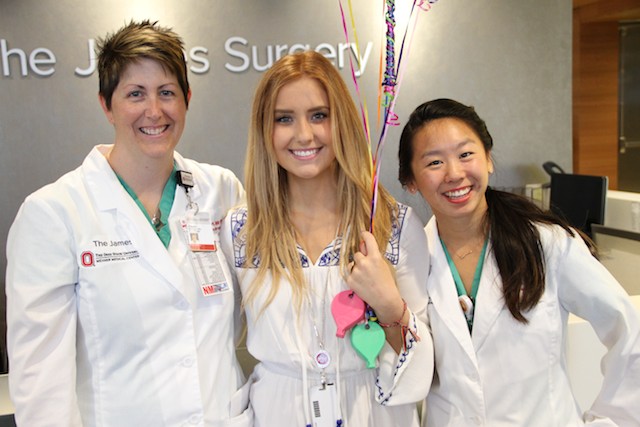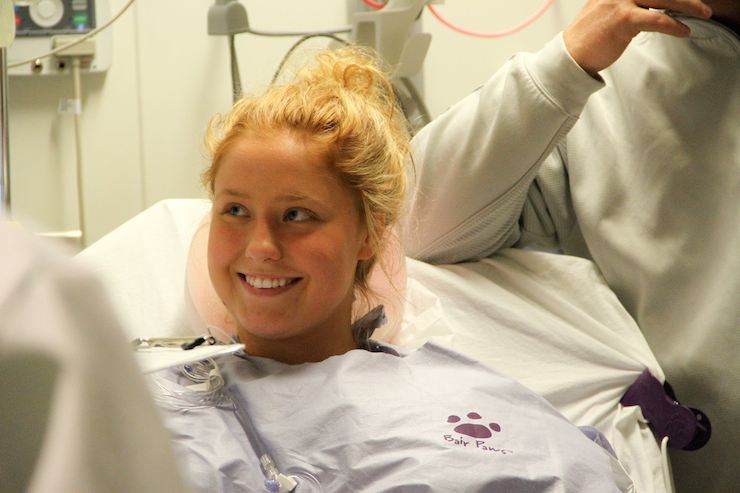For years, doctors dismissed her complaints that she was dizzy, tired, weak.
Elli Thatcher was 15 years old when she first got dizzy during basketball practice, a feeling that reoccurred often, no matter how many iron pills she took. Several medical professionals told her it was “just hormones.” Even her family thought she was being dramatic when she said she had to sit down repeatedly on trips to the mall.
But she knew something was wrong and continued enlisting the help of another doctor, then another.
“Everyone thought I was crazy, because I was having this feeling, but every doctor said nothing was wrong,” Thatcher, now 19, told Good News Network. “Even my parents thought I was being dramatic.”
Even after a lump had grown on her neck, nobody could give her answers. 
Boy’s Amazing Gadget to Revolutionize The Way Blind People Get Around
Last year, as a freshman studying pre-med at Ohio State University, she took a part-time job as a Student Assistant at Ohio State’s James Cancer Hospital, acting as a liaison between patients and their families and the hospital staff.
“I went up to one of the doctors, knowing what he specialized in, and asked him if he would look at the bump on my neck. I told him I had tried everything.”
Two days later, they found a tumor the size of a baseball.
The lump itself wasn’t the tumor–the tumor was pushing the walls of her throat outward. Dr. Matthew Old, the head and neck cancer surgeon at the hospital, at Ohio State’s Wexner Medical Center, was the first doctor to look down her throat and notice that it was asymmetrical.

“It took being in the right place in the right time and going up to someone who had seen something like this before and would know what to look for,” she said.
Though the surgery and the condition has caused her some setbacks, she hopes to become a doctor and help others who are experiencing lesser-known symptoms.
She is using her time at the hospital where she still interns, to encourage everyone to be their own best advocate, and listen to their heart, when it comes to their health.
Share This Advice With Your Friends and Family (Click below)…





















Wow! Good for her for trusting her instinct, and for using her experience to motivate her to help others with difficult to diagnose symptoms.
I had strange seizures for four years before I was correctly diagnosed. I told my doctors that no, it wasn’t panic attacks, it wasn’t epilepsy, and it wasn’t all in my head (though, technically, it was, lol). All tests showed no issues, until they finally ordered an MRI with contrast media, which showed the blood that had been hemorrhaging from a lesion for four years! (No wonder all the seizure meds they tried didn’t work, duh!) Five hours of brain surgery fixed it. Unfortunately, since it had been bleeding for so long, brain tissue surrounding the lesion was damaged and had to be removed.
I have short-term memory issues. I was denied disability for years until I finally gave up. I continually got in trouble at jobs, got fired, and seriously considered suicide. I now have a job at a small business with my sister, and they help me out, though I still forget things and cause problems.
More doctors need to trust their patients’ instinct!